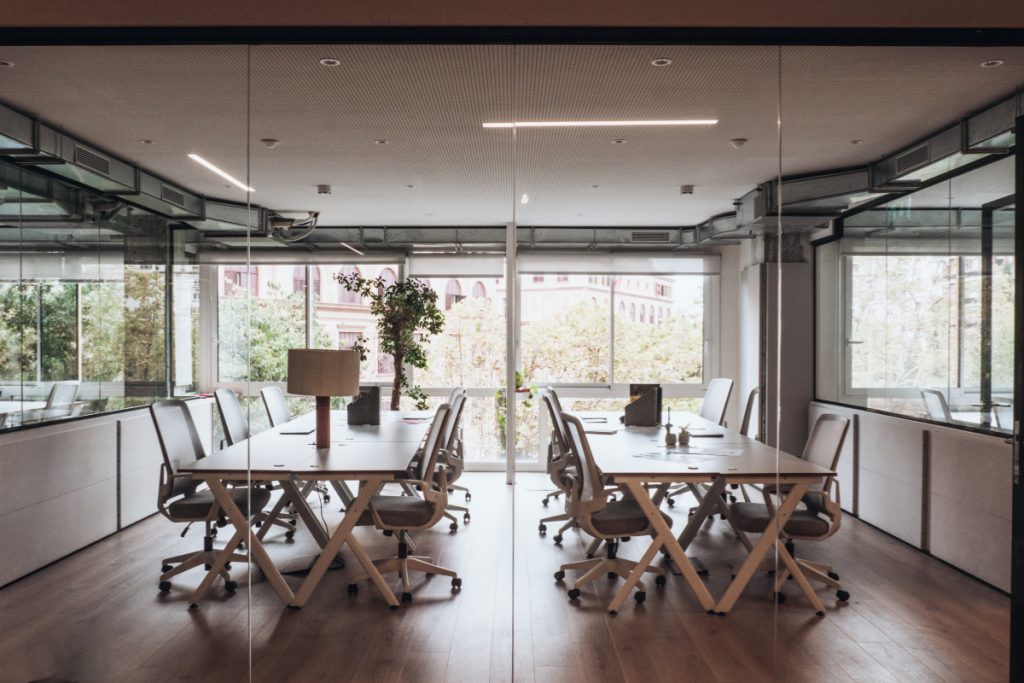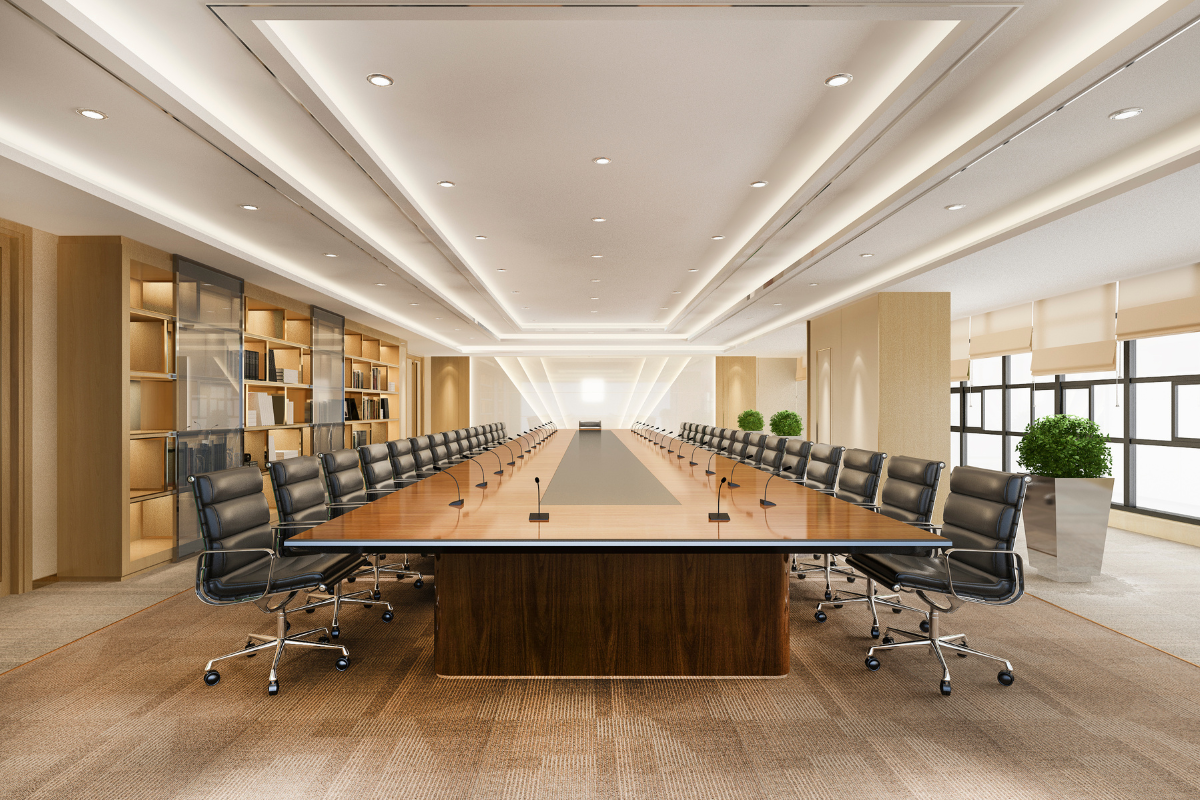Smart Office Synergy: Future-Proofing Singapore’s Workplaces
In a rapidly evolving global landscape, Singapore continues to stand as a beacon of technological advancement and urban innovation. With its Smart Nation ambitions, the city-state is reshaping how people live, commute—and increasingly, how they work. As organisations respond to shifting workforce expectations and rapid technological change, the emergence of smart offices represents a natural evolution in Singapore’s working culture. These intelligent, interconnected workplaces not only enhance productivity but also ensure resilience in the face of future disruptions. This article delves into the landscape of smart offices in Singapore, exploring how businesses are future-proofing their workplaces through digital synergy, sustainability, and human-centric office interior design Singapore and office renovation in Singapore.
The Rise of the Smart Office
The term “smart office” goes beyond digitised processes and automated systems. It refers to a workspace ecosystem that uses technology to improve the working experience, streamline operations, and create a more responsive and adaptive environment. At its core, the smart office is underpinned by the Internet of Things (IoT), artificial intelligence (AI), data analytics, and cloud connectivity.
In Singapore, smart office adoption has accelerated in the wake of the COVID-19 pandemic, which reshaped attitudes towards remote working, workplace health, and digital collaboration. Today, forward-thinking companies are no longer viewing smart technologies as optional enhancements—they are imperative tools for competitiveness, employee engagement, and long-term sustainability.
Key Elements of a Smart Office in Singapore
- Digital Infrastructure and Connectivity
The backbone of any smart office is a robust digital infrastructure. In Singapore, where fibre broadband penetration is among the highest globally, the groundwork is already well-established. Smart offices leverage high-speed internet, cloud-based platforms, and integrated communication systems that enable seamless collaboration between in-house and remote teams.
Advanced Wi-Fi 6, 5G-ready networks, and secure VPNs ensure that data is transmitted quickly and securely. In particular, the shift to cloud computing—championed by the government’s Digital Economy Framework for Action—has allowed companies to decentralise work, facilitating hybrid office models without compromising productivity or data integrity.
- IoT and Automation
Internet of Things devices have transformed the way offices operate. In Singapore’s Grade A buildings and tech hubs, it is common to find smart lighting systems that adjust based on occupancy and natural light levels, HVAC systems that optimise energy use, and sensor-enabled desks that monitor usage and ergonomics.
For instance, smart meeting rooms can automatically schedule bookings, adjust ambient settings, and initiate video calls through voice commands or mobile apps. Such innovations are especially useful in hot-desking arrangements, which have become popular in flexible workspaces across the CBD and beyond.
- Data-Driven Decision-Making
A major strength of smart offices lies in their capacity to generate actionable insights. Data collected from sensors, software platforms, and digital tools provide employers with information about how space is used, how teams collaborate, and how resources can be optimised.
In Singapore, where commercial real estate is both costly and scarce, the ability to maximise office space usage is a game-changer. Proptech startups are flourishing in this space, offering analytics platforms that help companies identify underutilised zones, peak activity periods, and potential energy savings—all contributing to better ROI on office investments.
Human-Centric Innovation: Enhancing the Employee Experience
Smart offices are not just about technology—they are designed with people in mind. In Singapore, where talent retention and workforce wellness are strategic priorities, companies are integrating employee-centric features into their office design.
- Wellness and Comfort
Employee well-being is increasingly being linked to productivity and job satisfaction. Smart offices now include air quality monitoring, circadian lighting systems, and acoustic zoning to support health and focus. Temperature and lighting can be personalised via apps, creating a sense of autonomy for workers.
Biophilic design is also gaining traction, integrating nature into office layouts to reduce stress and enhance cognitive function. Such features align with Singapore’s broader “City in Nature” vision and cater to the mental and emotional needs of the modern workforce.
- Hybrid and Flexible Working
Singaporean firms are embracing hybrid work models more earnestly post-pandemic. Smart offices support this shift by offering seamless booking systems for desks and rooms, real-time occupancy monitoring, and virtual collaboration tools such as immersive telepresence or VR-enabled meetings.
Smart lockers, touchless access systems, and digital visitor management further streamline operations, creating a workplace that is not only efficient but also resilient in the face of public health concerns or future disruptions.
Sustainability and Smart Design
As climate concerns mount and green certifications become more critical in commercial leasing, Singapore’s smart offices are also setting benchmarks in environmental responsibility.
- Energy Efficiency
Intelligent systems regulate energy use based on occupancy and environmental conditions. Smart buildings often feature energy dashboards that monitor consumption in real time, enabling tenants and landlords to meet stringent Building and Construction Authority (BCA) Green Mark standards.
Companies like CapitaLand and GuocoLand have pioneered green smart buildings in Singapore’s urban core, combining automated climate control, solar energy integration, and rainwater harvesting systems—all of which contribute to net-zero carbon goals.
- Sustainable Materials and Circular Design
Smart office design is moving towards modular and adaptable furnishings made from sustainable materials. IoT-enabled furniture can be tracked for usage and maintenance, encouraging circular practices like reuse and refurbishment.
Additionally, workplace apps can encourage sustainable habits among employees—prompting recycling, suggesting eco-friendly commutes, or offering gamified challenges to reduce carbon footprints.
Challenges to Smart Office Adoption in Singapore
While the benefits of smart offices are clear, adoption is not without its challenges:
- High Initial Costs: Setting up a smart office can be capital intensive. IoT devices, AI platforms, and integrated systems require upfront investment, which may deter SMEs despite long-term savings.
- Data Privacy and Cybersecurity: As workplaces become more connected, they also become more vulnerable to cyber threats. Ensuring robust data governance and cybersecurity protocols is essential, particularly in industries handling sensitive information.
- Workforce Readiness: Technology adoption must be matched by employee readiness. Training, digital literacy, and cultural buy-in are necessary to ensure tools are used effectively and not seen as intrusive or burdensome.
To mitigate these challenges, the Singapore government has rolled out several initiatives, such as the Productivity Solutions Grant and SMEs Go Digital programme, helping companies—especially smaller enterprises—transition towards smarter work environments.
Looking Ahead: The Future of Work in a Smart Nation
Singapore’s vision of a Smart Nation is not limited to infrastructure or public services—it encompasses the transformation of workplaces into dynamic, adaptive, and sustainable ecosystems. With the continued development of smart buildings like Paya Lebar Quarter, Funan, and upcoming hubs in Jurong and Punggol Digital District, the city-state is well on its way to becoming a global exemplar of future-ready office design.
Emerging technologies such as generative AI, digital twins, and mixed reality promise to deepen the smart office experience even further. Imagine an AI assistant that anticipates your day, arranges meetings, adapts your workspace to suit your work rhythm, and even helps monitor your health metrics—all while reducing environmental impact.
The future of work in Singapore is not just about surviving disruption—it’s about designing systems that enable people and businesses to thrive in a rapidly shifting world.
Conclusion

Smart office synergy is more than a trend—it is a paradigm shift that positions Singapore at the forefront of future-ready workspaces. As technology continues to advance, the integration of digital infrastructure, human-centric design, and sustainability will define the offices of tomorrow. For companies operating in Singapore, investing in smart office transformation is not merely a strategic move; it is a commitment to innovation, resilience, and holistic well-being.
As we step further into an era defined by digital acceleration and climate consciousness, Singapore’s smart offices exemplify what it means to work intelligently—and live responsibly.




